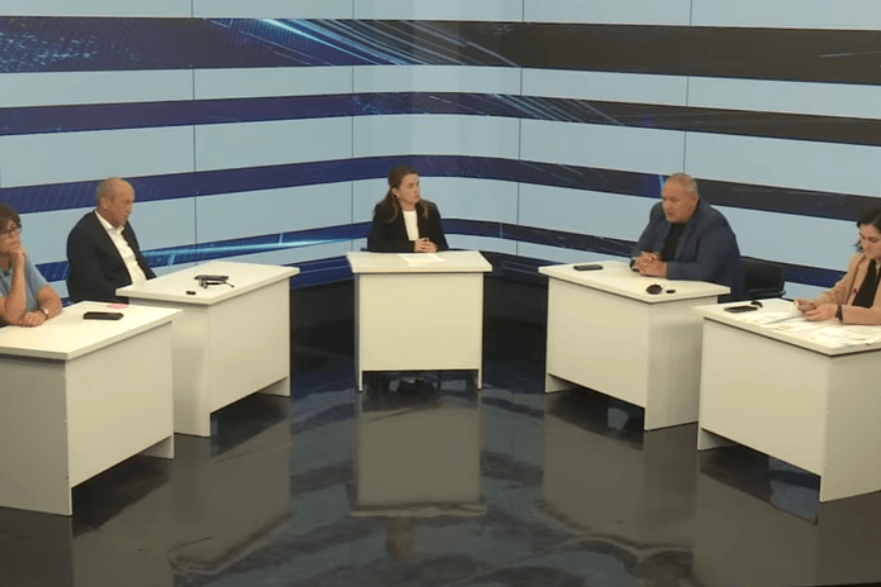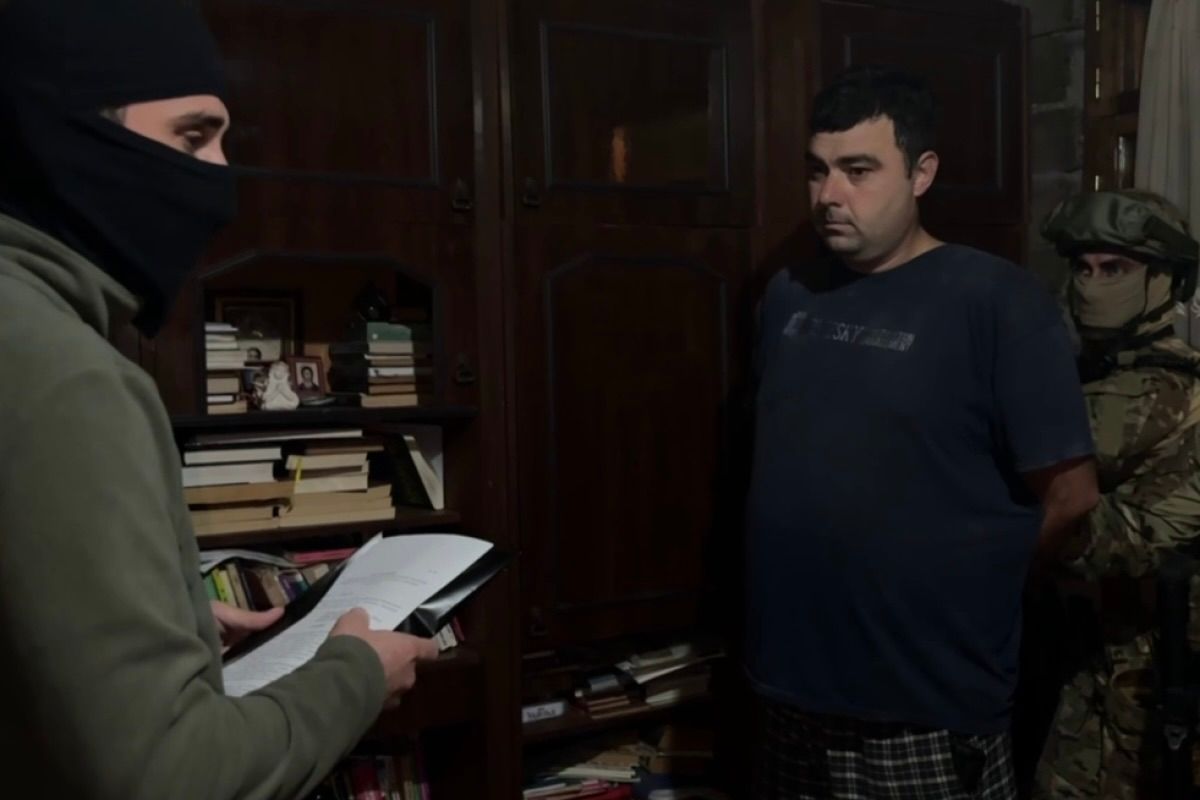
A group of Abkhazian opposition figures and journalists who have been stripped of their Russian citizenship or declared foreign agents by Moscow have begun a campaign against what they call politically motivated repression, including by securing a live broadcast on Abkhaz television.
Since the presidential election earlier this year, the political opposition in Abkhazia has become much less active, which many have said is a response to their persecution at the hands of both authorities in Sukhumi (Sukhum) and Moscow.
In particular, the most ardent opponents of former President Aslan Bzhaniya, who stepped down amidst widespread protests in November 2024, have been singled out for punishment, with many having their Russian citizenship revoked. Others have been designated as foreign agents by Russia, which places significant burdens on the ability to work.
Russia has widely distributed passports among Abkhazians, with the Abkhazian passport only recognised by five UN member states.
Those who have had their citizenship stripped include opposition figures Levan Mikaa and Kan Kvarchiya, a member of parliament. Adgur Arzinba (who ran for president in 2025), political analyst Inal Khashig, and journalists Nizfa Arshba and Izida Chaniya, have been declared foreign agents by Russia.
Since then, protests and criticism of the authorities in Abkhazia have significantly decreased, with many outspoken critics turning their attention away from Abkhazian President Badra Gunba and the government in Sukhumi, and instead towards the authorities in Moscow.
Journalists who have been targeted by these measures have begun appealing to Russian courts, challenging their foreign agent status. In addition, Kvarchiya has initiated the creation of a parliamentary commission to investigate the practice of Abkhazian activists having their Russian citizenship revoked.
To convey their position to the widest possible audience, the opposition, including some politicians who have not been sanctioned, secured a live broadcast on Abkhazian television at the end of September.
During the broadcast, Kvarchiya demanded that the authorities answer two questions: are there anti-Russian sentiments in Abkhazia, as Russia claims, and what is the attitude of the Abkhazian authorities toward ‘patriots’?
‘It turns out that being a patriot and defending your country’s interests is becoming a dangerous endeavor today’, Kvarchiya said in the broadcast, adding that he and other opposition figures were warned not to make waves.
‘No sanctions will stop a person if they are a patriot and understand that the issues they bring up could backfire on the country. Now everyone knows how it ended for us. But I have no complaints against the Russian side’, Kvarchiya said.
According to Kvarchiya, as president, Bzhaniya wrote letters to Moscow blaming the opposition for all his failures and claiming that ‘Western-funded forces’ were preventing him from fulfilling all his commitments.
Separately, journalist Nizfa Arshba said she was concerned that the issues she and her colleagues are facing are not being discussed enough in public.
Arshba added that she was labeled a foreign agent in Russia simply because she criticised former Foreign Minister Inal Ardzinba and demanded his resignation.
‘It turns out I don’t have the right to post on my personal social media page. At the same time, the Russian Ministry of Justice officially concludes that they have no information that I have ever received any funds from foreign sources’, Nizfa said on television.
Arshba added that the Russian Justice Ministry claimed her label of foreign agent stems from her having Abkhazian citizenship and living in Abkhazia.
All three journalists who were designated as foreign agents in Russia attempted to have the decisions overturned via the Russian legal system, but were unsuccessful.
In light of the crackdown, many journalists in Abkhazia have opted to continue their work anonymously.
Abkhazia does not have a foreign agent law, and journalists are not required to label journalistic work as being produced by a foreign agent, as in Russia.
All three journalists all said they did not wish to leave Abkhazia, fearing that new sanctions from Russian law enforcement agencies might follow.
Other figures who have been subjected to the measures have also continued with their business — Kvarchiya has remained an MP, while businessperson Levan Mikaa has maintained his business interests, as well as charitable work to promote the Abkhaz language.
For ease of reading, we choose not to use qualifiers such as ‘de facto’, ‘unrecognised’, or ‘partially recognised’ when discussing institutions or political positions within Abkhazia, Nagorno-Karabakh, and South Ossetia. This does not imply a position on their status.











